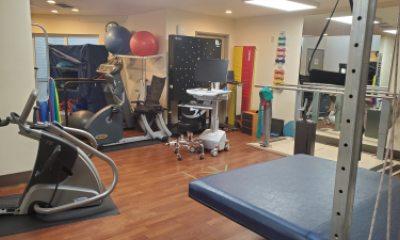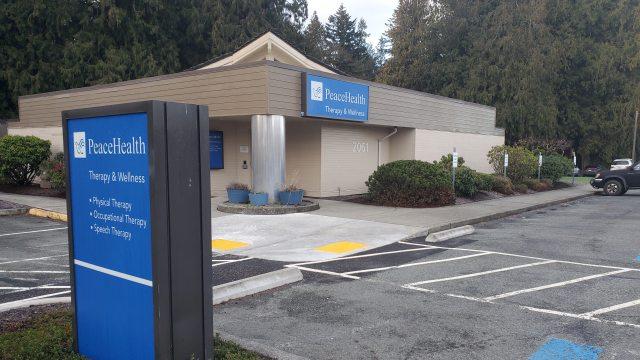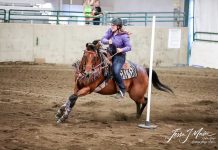Each year, millions of Americans seek rehabilitation therapies for physical, neurological and speech-related issues. In Skagit County, a small square building at 2061 Hospital Drive in Sedro-Woolley – just outside of the main building at PeaceHealth United General Medical Center – is the place these issues can be treated.
The hospital’s outpatient Therapy & Wellness Center has an eight-person team of experienced professionals who provide occupational, physical and speech therapies. Having an outpatient clinic that addresses all three types of therapy is rare, says Elizabeth Coit-Hooker, United General’s manager for rehab services. “We literally treat pretty much anything and everything,” she says. “Our therapists have a broad depth of experience for the types of treatments we do.”

Sedro-Woolley Clinic Overview
At the Therapy & Wellness Center, occupational therapy specialists can craft individualized treatment plans for injuries or neurological conditions involving the hands, wrists, elbows and shoulders. This includes exercises, adaptive equipment and custom fabricated splints.
The clinic’s physical therapists can diagnose and treat all manner of physical injuries, working to manage pain, restore function and improve movement of a wide variety of conditions. Whether someone is struggling with balance issues from vertigo, recovering from hip or knee surgery, nursing an orthopedic injury or needing a wheelchair assessment, Coit-Hooker says the clinic can help.
In addition, the Therapy & Wellness Center offers speech therapy to diagnose and treat conditions involving language, social communication, cognition and swallowing. This includes issues with slurred or decreased speech, word-finding and the barium swallow test.
In addition to a joint gym and drivers’ screens, the clinic is certified for stroke rehabilitation and treatment of traumatic brain injury.

Lymphedema Treatment in Skagit County
As a growth-oriented facility, Coit-Hooker says they’re constantly looking at how they can expand treatment offerings to accommodate local demand.
Most recently, the clinic added a therapist with a lymphedema certification. The condition – in which swelling occurs in various parts of the body due to a build-up of lymph fluid from lymphatic system malfunctioning – often occurs after cancer treatment.
The center is also seeking the addition of pelvic floor certification to help with incontinence and post-birth issues.
Certified Parkinson’s Program at PeaceHealth
The clinic also offers several rehab opportunities for those with Parkinson’s disease and similar neurological-based movement disorders.
Lee Silverman Voice Treatment (LSVT) provides speech and movement therapies for these patients. At the Sedro-Woolley Therapy & Wellness Center, LSVT movement sessions are conducted by physical therapist Jon Kamp and his assistant, physical therapist Krista Swanson.
Many patients with Parkinson’s struggle with normal movement. In addition to tremors, they may walk with a shuffling gait, taking steps considered too small for their intention. They may also move very slowly, get stuck in certain movements, or be unable to complete certain movement-based actions. That’s where Lee Silverman Voice Treatment comes in–specifically, what’s known as LSVT-BIG rehab.
“The purpose is to re-calibrate movement,” Kamp says of the therapy. “To make it more efficient and larger. It’s working to try and improve the efficiency and quality of movement.”
Due to the neurotransmitter changes that Parkinson’s causes in the brain, patients exhibiting these symptoms may not be fully aware they’re moving in a strange way, Swanson says. “A lot of times, a patient with Parkinson’s feels like they’re walking and moving normally, but in reality, their movement is really, really small,” she says. “They’re shuffling, they’re not swinging their arms.”
LSVT-BIG’s goal is to produce movements that land in the middle of a patient’s perception of movement and their reality. “That may mean making huge movements that just feel ridiculously big to them,” Swanson says. “The hope is that we’ll sort of meet somewhere in the middle. Then, a normal movement feels more normal to them again.”
The one-on-one therapy sessions also work to identify wherever a patient is struggling most, while also adding in functional tasks like putting on a jacket or getting out of bed, Kamp says. The goal is to break a task down into parts and practice movements until it feels more functional and normal.
Anyone with Parkinson’s symptoms – regardless of an official diagnosis – and a referral is eligible for United General’s Lee Silverman Voice Treatment program, which is an insurance-eligible therapy. The one-hour sessions happen four days a week for four weeks.

PeaceHealth’s BIG For LIFE Program
Once those sessions are completed, patients become eligible for what’s called the BIG For LIFE program. This one-hour, four-to-six-person group therapy happens once a week, and is a continuation of what they’ve done in the one-on-one sessions, helping maintain what they’ve already learned.
The classes take place in a part of United General’s hospital building that has enough room for the “big” movements the instructors and patients are making. These sessions are not insurance-eligible, and a donation of $10 per class is suggested. For those unable to pay, alternate arrangements based on financial need are available.
While these sessions are rehab and not emotional support groups, Kamp and Swanson say that patients commonly socialize with each other before and after classes, sharing information on other related resources like actual support groups.
United General currently provides the only LSVT sessions in Skagit County, and Kamp and Swanson say that, over the last several years, they’ve seen the results of the rehab first-hand, watching patients recover movement, functionality and independence in living with Parkinson’s.
“I think our patients get a lot of support through the classes,” Kamp says. “They’re heard, and they have this team, these coaches helping them. I think the people who go through it appreciate that, and that’s the feedback we get.”
Coit-Hooker agrees and encourages anyone with a Parkinson’s diagnosis to reach out if interested.
“They’re not alone in this,” she says. “Finding resources and getting support is a big step, but it’s super important. The program is really amazing.”
Sponsored



































